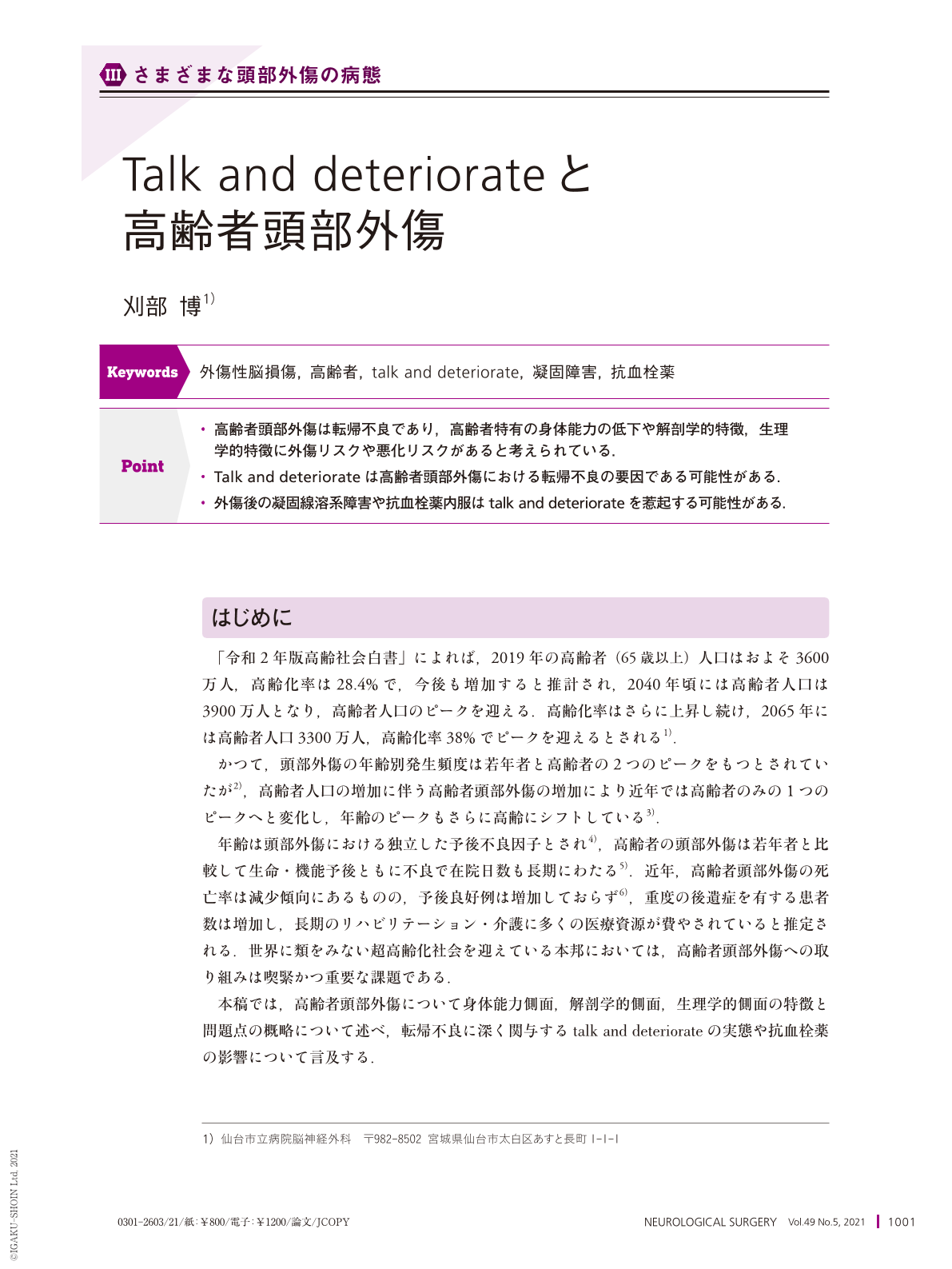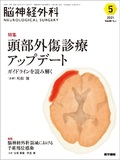Japanese
English
- 有料閲覧
- Abstract 文献概要
- 1ページ目 Look Inside
- 参考文献 Reference
Point
・高齢者頭部外傷は転帰不良であり,高齢者特有の身体能力の低下や解剖学的特徴,生理学的特徴に外傷リスクや悪化リスクがあると考えられている.
・Talk and deteriorateは高齢者頭部外傷における転帰不良の要因である可能性がある.
・外傷後の凝固線溶系障害や抗血栓薬内服はtalk and deteriorateを惹起する可能性がある.
Recently, the incidence of traumatic brain injury(TBI)has been increased in elderly people. This study addresses the clinical characteristics of TBI in elderly people. The most frequent cause of TBI in elderly people is either falls on the ground or from heights since both motor and physiological functions are degraded such people. Acute subdural hematoma(ASDH)is the most frequent among acute traumatic intracranial lesions. Its high frequency could be possibly associated with increased volume of the subdural space resulting from atrophy of the brain in elderly people. Delayed aggravation of other intracranial hematomas have also been explained by such anatomical and physiological changes in elderly people. A recent study demonstrated that the survival rate of 2-6 days after TBI was significantly lower in the elderly people than younger adults, suggesting that “talk and deteriorate” may play an important role for the poor outcome in elderly people with TBI, although its mechanisms are not fully understood. Coagulopathy after TBI and pre-injury antithrombotic agents may be associated with such a delayed aggravation, making the management of TBI in elderly people in difficult. Establishing preventions and treatments for TBI in elderly people is urgent.

Copyright © 2021, Igaku-Shoin Ltd. All rights reserved.


